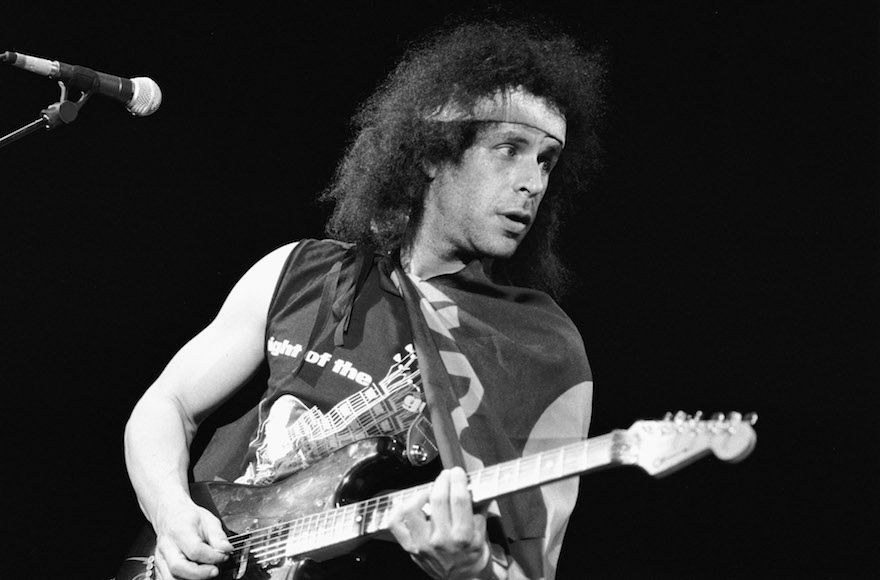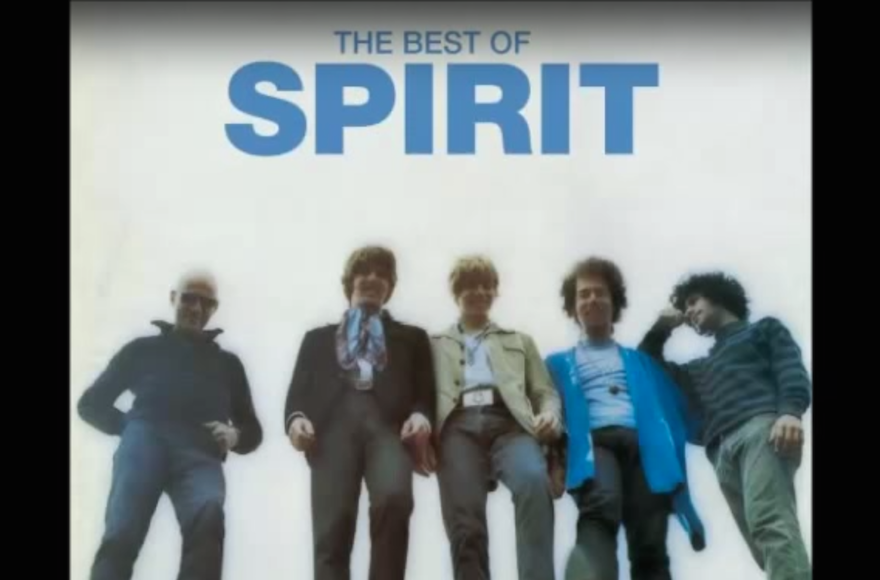The ‘Stairway to Heaven’ lawsuit and the legacy of a forgotten Jewish rock star
Published June 15, 2016

Randy California (née Wolfe) performing in Utrecht, the Netherlands, May 1, 1989. (Frans Schellekens/Redferns/Getty Images)
In 1968, a new British band called Led Zeppelin went on tour with the psychedelic American rock group Spirit — fronted by a Jewish 17-year-old named Randy Wolfe, aka Randy California.
ADVERTISEMENT
Nearly 50 years later, a lawsuit filed on behalf of Wolfe, who died in 1977, alleges that Led Zeppelin stole the famous riff used in “Stairway to Heaven” from Spirit’s song “Taurus.” The federal copyright trial began Tuesday in Los Angeles, with Led Zeppelin guitarist Jimmy Page and singer Robert Plant appearing in court.
Concerns about a mistrial aside, the outcome could have implications for where the music industry draws the line between plagiarism and inspiration. It could also have a significant financial impact. As of 2008, “Stairway” had grossed over $562 million in record sales and royalties, which Wolfe’s trust wants a part of.
Meanwhile, the high-profile trial has reopened the case on Wolfe’s legacy. If you ask members of his cult following, he’s among the most under-appreciated guitarists of the classic rock era. Here are some facts you should probably know.
He personally taught Page the intro to “Taurus,” according to court papers
Page asked Wolfe in 1969 to show him how to play the intro to “Taurus,” and Led Zeppelin’s members were fans of Spirit and went to see their shows, even beyond the bands’ first tour together in 1968, according to court documents.
Judge for yourself: The part of “Taurus” that Wolfe’s estate claims was used in “Stairway to Heaven” begins about 45 seconds into the video below.
ADVERTISEMENT
“I’d say it was a rip-off,” Wolfe told Listener Magazine in 1997. “And the guys made millions of bucks on it and never said, ‘Thank you,’ never said, ‘Can we pay you some money for it?’ It’s kind of a sore point with me.”
He wrote a song titled “Jewish”
Wolfe arranged a rock version of the Jewish hymn “Hineh Mah Tovu Umanaim” complete with Hebrew words, guitar solos and tempo changes. The song was featured on Spirit’s second album, “The Family That Plays Together” in 1968.
He reportedly got the stage name Randy California from his good friend Jimi Hendrix
Wolfe moved from Los Angeles to New York, where he met Hendrix when he was 15 years old. He played in one of Hendrix’s earliest bands, Jimmy James and the Blue Flames, and almost followed the soon-to-be guitar legend to England.
He died while saving his son from drowning
To celebrate the New Year in 1997, Wolfe and his 12-year-old son, Quinn, went swimming off the coast of Molokai, Hawaii. They were both caught up in a tidal wave, but Wolfe managed to push his son to safety before drowning. He was 45.
His guitar playing reminded his mother of the sounds of her synagogue
“I always feel Randy’s solos sounded like what I remember from temple,” Wolfe’s mother Bernice Pearl is quoted as saying in Scott R. Bernarde’s book “Stars of David: Rock ‘n’ Roll’s Jewish Stories.” “I told him that sometimes his guitar sounded like a cantor in synagogue.”
Wolfe’s uncle, Ed Pearl, founded the influential Los Angeles folk club the Ash Grove.

The cover of “The Best of Spirit” (Screenshot from YouTube)














